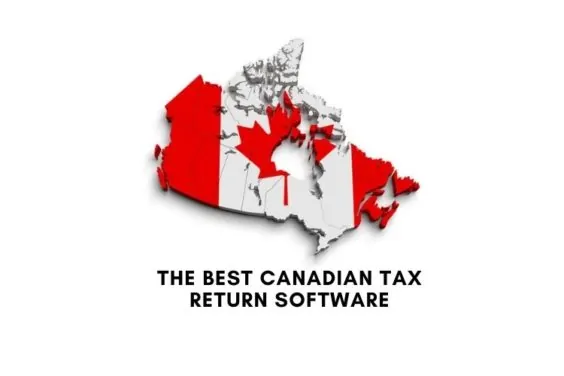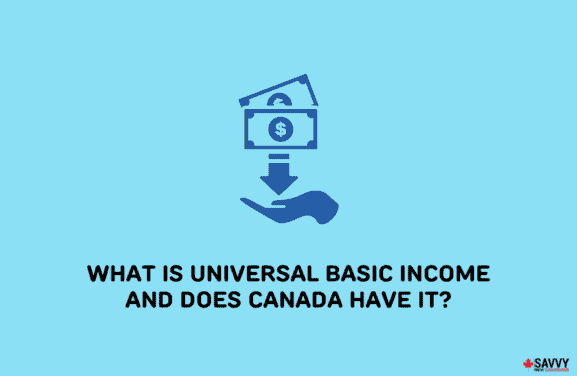Bell, Rogers and Telus are three of the biggest names when it comes to internet service providers (ISPs) and when discussing the top 10 ISPs in Canada.
Also called the Big Three, they provide a range of internet plans that cater to the various needs of internet users.
Read on further to learn about the country’s best ISPs and who provides the fastest internet in Canada.
Key Takeaways
- Bell Communications offers the fastest internet in Canada, which is 8 Gbps, through its Gigabit Fibe 8.0 plan.
- To find the most suitable internet provider for your household, consider how much data you need, what speed you require, and your budget.
- Canada’s internet plans are among the most expensive worldwide, with the average cost of a plan being $95 per month.
Best Canadian Internet Providers
| Provider | Internet Speed Range of Popular Plans | Availability | Pros |
| Bell | 1.5Gbps to 8Gbps | Select major areas in Canada | Free installation and no long-term contracts. |
| Rogers | 10Mbps to 1.5Gbps | Limited coverage | Affordable cable and fibre internet options |
| Telus | 250Mbps to 3000Mbps | Select regions in Canada | It has multiple prepaid and traditional plans and doesn’t charge data-overage fees |
| TekSavvy | 50Mbps to 3000Mbps | Most provinces in Canada | Wide variety of plans and pricing options |
| Eastlink | 100Mbps to 940Mbps | Every province except Saskatchewan and the territories. | No term contracts (for most plans) and free router rental |
| Videotron | 30 Mbps to 940Mbps | Quebec and some rural areas within the province | Self-installation using high-performance equipment |
| Shaw | 250 Mbps to 1.5Gbps | Western Canada | Easy installation and control with the Shaw Home app |
| SaskTel | 25Mbps to 940Mbps | Only in Saskatchewan | Unlimited usage and 24/7 support |
| Virgin Mobile | 50Mbps to 300Mbps | Ontario and Quebec only | No installation fees or hidden costs and affordable internet plans |
| Fido | 50Mbps to 100Mbps | Ontario | Free data boost every month and 30-day return policy |
Find out below what companies hold the recognition of being the best Canadian internet providers.
1. Bell
Bell is the largest communications company in Canada, providing mobility, TV, home phone services, and Bell home internet.
Among its most popular plans are the following Gigabit Fibe Internet packages and their respective speeds:
- Gigabit Fibe 8.0 – 8Gbps
- Gigabit Fibe 3.0 – 3Gbps
- Gigabit Fibe 1.5 – 1.5Gbps
All three plans include unlimited monthly usage and the 6E Giga Hub, the latest and fastest Wi-Fi technology.
Bell’s 5G, backed by fibre, is available in select major areas of Vancouver, Calgary, Edmonton, Winnipeg, the Greater Toronto Area, Montreal and more.
Bell internet plans are ideal for gaming, streaming, working from home and videoconferencing.
Pros and Cons
Pros:
- Fibre internet plans are generally fast and affordable
- Offers some of the best unlimited plans in Canada
- No fee when cancelling a plan
- Free installation
- No long-term contracts
Cons:
- Plans are expensive
- Not ideal for light internet users
- Limited internet availability
2. Rogers
One of the best internet providers in Ontario, Canada, Rogers offers cable and fibre internet services in the province, as well as in Newfoundland and Labrador and New Brunswick.
It offers several cable and fibre internet plans and their corresponding speeds:
- Internet 10 – 10 Mbps
- Ignite Internet 50u – 50Mbps
- Ignite Internet 150u – 150Mbps
- Ignite Internet 500u – 500Mbps
- Ignite Internet Gigabit 1.5 – 1.5Gbps
All plans come with unlimited monthly data, except for the Internet 10 plan, which provides monthly data of 100GB.
Rogers is ideal for Canadians who need high-speed internet, such as gamers. It is also suitable for individuals working from home or streaming shows on multiple devices.
Pros and Cons
Pros:
- Offers affordable cable and fibre internet options at various speeds
- No term contract
- Unlimited data
Cons:
- Limited coverage
- Installation fee for new activations
3. Telus
Telus, one of the largest telecom companies in Canada, provides internet plans that use the PureFibre high-speed fibre-optic network, the fastest in Canada.
One of the largest wifi providers in Vancouver, Telus offers speeds of up to 3000 Mbps and symmetrical download and upload speeds. The most popular Telus internet plans and their primary features are:
- PureFibre Internet 250 – Up to 250Mbps
- PureFibre Internet Gigabit – Up to 940Mbps
- PureFibre X Internet 3G – Up to 3000Mbps
All three plans provide unlimited data on a 2-year term, then $20/month. You can install Telus internet through Self Install or Professional Install for a fee.
Telus Internet is available in select regions of Alberta, British Columbia, Manitoba, Quebec and Saskatchewan.
With its faster speeds, better bandwidth and reliability, Telus PureFibre is best for heavy internet users and connecting multiple devices. It is ideal for streaming video, gaming, and tasks like daily video conferencing.
Pros and Cons
Pros:
- 99% Canadian coverage
- Multiple prepaid and traditional plans to choose from
- Offers bundling plans to save money
- No data-overage fees
- 30-day money-back guarantee
- Flexible installation options
Cons:
- Not many plans for light internet users
- Delayed customer service response for complaints
4. TekSavvy
TekSavvy, a Chatham, Ontario-based internet service provider, is a low-cost option to Telus, Bell, and Rogers, offering TV, phone and broadband internet services.
It offers a range of internet plans (fibre, cable and DSL) with varying broadband speeds, starting at 5 Mbps up to 3000 Mbps for fibre connections.
Some of its internet plans and their respective speeds include:
- DSL 50 Unlimited – 50Mbps
- Fibre 500 Unlimited – Up to 500Mbps
- Fibre 1 Gig Unlimited – Up to 1000Mbps
- Cable 1000 Unlimited – Up to 1000Mbps
- Fibre 3 Gig Unlimited – Up to 3000Mbps
The plans include unlimited data and no hidden charges. The service is available in most provinces of Canada, including Ontario, British Columbia and Nova Scotia.
Teksavvy internet plans are ideal if you are looking for high-speed internet at lower monthly rates.
Pros and Cons
Pros:
- Unlimited data per month
- No long-term contracts
- No hidden fees
- Wide variety of plans and pricing options
Cons:
- Upfront fees
- Fibre internet service is limited to the Chatham-Kent area
5. Eastlink
Eastlink, a Halifax-based family-owned and operated telecommunications company, provides various communications services, including high-speed internet, wireless, and data.
Some of its most popular plans, which include unlimited data, are as follows:
- Internet 100 Fibre Link – 100Mbps
- Fibre Link Internet 350 – 350Mbps
- Fibre Link Internet 1 Gig – 940Mbps
Eastlink internet services are available in every province except Saskatchewan and the territories.
Pros and Cons
Pros:
- No term contracts (for most plans)
- Free router rental
- Reduced prices for the first year
- Advanced threat protection
Cons:
- Long wait times when calling customer support
- Complaints of poor customer service
- Loss of connectivity in some areas
6. Videotron
Videotron, a telecommunications company owned by Quebecor Media Inc., offers unlimited internet to residents across Quebec and some rural areas within the province.
Videotron plans with their corresponding download speeds include:
- Internet 30 – Up to 30Mbps
- Internet 60 – Up to 60Mbps
- Internet 100 – Up to 100Mbps
- Internet 400 – Up to 400Mbps
- Internet GIGA – Up to 940 Mbps
The plans offer unlimited download speeds to meet varied online activity needs and secure Wi-Fi for all devices and data.
Pros and Cons
Pros:
- Self-installation
- Unlimited data
- High-performance equipment
- 30-day satisfaction guarantee
Cons:
- Equipment cost not included in the subscription
- Some complaints of constant service interruptions
7. Shaw
Shaw, which recently merged with Rogers, provides more 5G and fibre-powered internet as its networks are expanded across Alberta, British Columbia, Manitoba, and Saskatchewan.
Some of Shaw’s popular internet plans and their respective download speeds include:
- Fibre+ 250 – Up to 250Mbps
- Fibre+ 500 – Up to 500Mbps
- Fibre+ Gig – Up to 1Gbps
- Fibre+ Gig 1.5 – Up to 1.5Gbps
All plans include unlimited data and Fibre+ Gateway.
Shaw internet services are available in western Canada, providing high-speed internet to Alberta and British Columbia.
Pros and Cons
Pros:
- No overages
- Varied speeds for different household needs
- Easy installation and control with the Shaw Home app
- A low-cost wireless program that offers wireless services
Cons:
- $50 activation fee
- Limited coverage
8. SaskTel
SaskTel is a wireline and wireless communications company owned by the provincial government of Saskatchewan that provides a range of services, including broadband internet.
It offers different internet plans with varying speeds and comes with unlimited usage.
- Infinet plans – 150 Mbps to 940Mbps
- Internet plans – 25 Mbps up to 50Mbps
- Rural Internet – Fixed wireless technology (100GB and unlimited plans available) and mobile internet (5GB and 60GB plans)
The plans, which come with a Wi-Fi-enabled gateway, are capable of light to heavy data usage and streaming video.
Pros and Cons
Pros:
- Unlimited usage
- Free installation
- 24/7 support
Cons:
- Some plans require the purchase and installation of equipment that costs $249
- Available only in Saskatchewan
9. Virgin Mobile
Virgin Mobile started as a subsidiary of Bell in 2005 and rebranded to Virgin Plus in 2021. It provides affordable internet plans powered by Bell Canada but at cheaper rates.
The Virgin home internet plans, which are available in Ontario and Quebec only, are as follows:
- 50Mbps plan
- 100Mbps plan
- 300Mbps plan
Virgin Plus is an excellent choice for streaming movies, playing online games, and working from home. Its 100Mbps plan is ideal for families and shared internet.
Pros and cons
Pros:
- Unlimited monthly usage
- No long-term contract
- No installation fees or hidden costs
- Affordable internet plans
- Self-install (in select locations only)
Cons
- Limited coverage
- Price increase during subscription
10. Fido
Fido is a first-level flanker brand owned by Rogers and uses its internet infrastructure to provide internet services to residents in Ontario.
The Rogers subsidiary offers two straightforward internet plans:
- Internet 50 – 50Mbps
- Internet 100 – 100Mbps
The plans include unlimited data, a free Fido SIM card and modem rental.
Fido is ideal for basic internet users and not for households with hardcore gamers or work-from-home family members.
Pros and Cons
Pros:
- Straightforward and affordable internet plans
- Data overage protection
- Free data boost every month
- 30-day return policy
Cons:
- No options for high-speed internet
- Early cancellation fees
- Setup service fee
11. VMedia
VMedia is a Toronto-based telecommunications company offering diverse services, including high-speed internet.
It offers various internet plans and speeds to accommodate the internet requirements of its clients, from basic internet users to gamers.
Below are some of its internet plans and their corresponding speeds. The plans come with unlimited data and free modem rental.
- Internet 6 – Up to 6Mbps
- Internet 50 – Up to 50Mbps
- Internet 300 – Up to 300Mbps
- Internet 500 – Up to 500Mbps
- Internet 1024 – Up to 1024Mbps
VMedia internet services are available in Alberta, British Columbia, Manitoba, Ontario and Quebec and some areas in New Brunswick, Newfoundland and Labrador, Nova Scotia, and Prince Edward Island.
Pros and Cons
Pros:
- No fixed-term contracts
- Free installation and free equipment (with some plans)
- 30-day money-back guarantee on VBoxes
Cons:
- Some reports of poor customer service
- The provider may request payment of a deposit for services or leased equipment
12. Primus
Primus is an Ontario-based facilities-based telecommunications service provider that offers consumer, business and wholesale communications services.
The provider offers high-speed and unlimited high-speed internet plans with varying speeds to suit various internet needs, from basic to heavy users.
- Internet 15 – Up to 15 Mbps
- Internet 50 – Up to 50 Mbps
- Internet 100 – Up to 100 Mbps
- Internet 500 – Up to 500 Mbps
- Internet 1 Gbps – Up to 1 Gbps
While Primus offers internet services in all of Canada’s provinces and territories, availability will be less widespread in northern areas.
Pros and cons
Pros:
- No activation fee when ordering online
- Unlimited internet usage without additional charges
- Can be bundled with a home phone and long-distance services
Cons:
- Pricing and plan availability varies by location
- Internet security is not provided
13. Cogeco
Cogeco is a Quebec-based internet service provider that offers cable internet plans to residents of Ontario and Quebec.
The company provides various internet plans with different speeds:
- UltraFibre 60 Unlimited – Up to 60 Mbps
- UltraFibre 120 Unlimited – Up to 120 Mbps
- UltraFibre 360 Unlimited – Up to 360 Mbps
- UltraFibre 1Gig Unlimited – Up to 1 Gbps
Cogeco offers internet plans that suit different requirements, from basic ones for light use, such as browsing, to high-speed plans for heavy use, including streaming and gaming.
Pros and Cons
Pros:
- No-contract internet plans
- Unlimited monthly usage
- Self-install available
- Access to free hotspots throughout Quebec and Ontario
Cons:
- Plans are not available in all areas serviced
- Limited availability
14. Oxio
Oxio is an internet service provider that utilizes the infrastructure of major internet providers to offer affordable internet services.
Internet plans for the Ontario area include:
- 30Mbps for up to 4 devices
- 75Mbps for up to 8 devices
- 300Mbps for up to 14 devices
- 1000Mbps for up to 25 devices
All Oxio plans come with unlimited data and a modem/router. The service is available in Ontario, Alberta, British Columbia, Manitoba, Quebec and Saskatchewan.
Pros and Cons
Pros:
- Free installation
- Unlimited downloads
- No term contracts
- Transparent pricing
- No fine print
- 60-days money-back guarantee
Cons:
- Plans and pricing vary by region
- No fibre internet options
15. Coextro
Coextro is a Mississauga, ON-based high-speed internet provider offering internet services to residents in Ontario.
The following are some of the internet plans offered by the provider, which vary by location:
- 30/5 Hybrid-Fibre Optic Plan – 30Mbps download, 5 Mbps upload
- 100/30 Hybrid-Fibre Optic Plan – 100Mbps download, 30Mbps upload
- 1000/50 Hybrid-Fibre Optic Plan – 1000Mbps download, 50Mbps upload
- 1500/50 Hybrid-Fibre Optic Plan – 1500Mbps download, 50Mbps upload
All the plans include unlimited data and come with free installation when subscribing to Coextro services.
Pros and Cons
Pros:
- Unlimited usage
- Free hardware rental
- No hidden fees
- No contracts and lock-in periods
- 7-day risk-free trial period
Cons:
- Prices are usually introductory
- Limited availability
16. Bravo Telecom
Bravo Telecom is an independent Montreal-based internet service provider offering high-speed internet using cable or hybrid fibre technology.
It offers a range of internet plans and speeds that fit varied budgets and needs, including:
- Internet 10 – 10Mbps
- Internet 30 – 30Mbps
- Internet 60 – 60Mbps
- Internet 120 – 120Mbps
- Internet 200 – 200Mbps
Internet plans with speeds from 10 to 60 include a basic router. For plans with higher speeds, a deco router is available for rent or purchase.
Bravo Telecom internet plans are available in the province of Quebec, specifically in the Greater Montreal area, Quebec City, Gatineau, and Sherbrooke.
Pros and Cons
Pros:
- Free installation
- Unlimited download
- No hidden fees
- No contracts
- Free modem and router rental
- 15-day money-back guarantee
Cons:
- Available in Quebec only
What is the Cheapest Home Internet in Canada?
TekSavvy’s Cable 100 Unlimited is the cheapest home internet in Canada, with download speeds of up to 100Mbps and upload speeds of up to 30Mbps.
It also comes with unlimited monthly usage and can connect 5 to 9 devices at the same time.
What is the Fastest Internet in Canada?
Bell Communications offers the fastest internet in Canada with its Gigabit Fibe 8.0 plan. You can get maximum upload and download speeds of 8Gbps.
High-speed Fibe plans are available at Bell, with speeds ranging from 10Mbps to 8Gbps. The provider also has an expansive Bell Mobility LTE network, allowing it to have speeds of up to 25Mbps.
What To Look For in an Internet Provider
In today’s world, staying connected is vital, so choosing an internet provider is a task that should be taken seriously. It is a critical factor that determines how successfully you can connect with personal and professional networks.
With the countless options available today, it pays to take the time to find the provider that can meet your internet needs. Below are some questions to answer when looking for the best internet provider.
- How much data do you need? If you are a light user, you will often require a basic plan fit for typical tasks like browsing. But if you are a gamer, you will need unlimited data. Knowing your data usage lets you pay only for what you need.
- What speed do you require? How you use the internet and the number of people accessing it at once are factors in determining your internet speed. Heavy internet use and multiple people going online at once require higher speeds.
- Is their pricing transparent? Look at their pricing model and see if they offer contracts or flexible monthly plans. Check if they are upfront with their costs, have no hidden fees, and are straightforward about price increases.
How to Choose the Best Internet Provider in Canada
Below are the steps in choosing the best internet provider in Canada.
- Determine the needs of your household, the number of people and their internet activities.
- Set a budget, with consideration of the internet requirements of your family members. Your internet plan should ideally not exceed 1% of your gross household income.
- Find out the internet service providers in your area by using an internet plan finder and entering your postal code.
- Compare plans from different providers. Calculate how much you will pay initially. This will include the cost of the plan, activation fee, and modem.
- Choose a plan that suits your needs. Check if there is a bundling offer that can save you money.
FAQs
They are Bell Canada, Rogers Communications and Telus Communications. Bell and Rogers are considered the biggest providers in Ontario, while Telus is the largest in western Canada.
The Gigabit Fibe 8.0 from Bell is the fastest in Canada, with symmetrical download and upload speeds of 8Gbps. Compared with cable technology, this is five times faster. The Gigabit Fibe 8.0 package also comes with the Giga Hub, which features Wi-Fi 6E, the latest and fastest Wi-Fi technology that enables speeds of up to two times faster for connected devices.
In North America, Canada has the most expensive internet, with 1GB costing an average of $5.94. This is based on an analysis of nearly 5,300 mobile data plans in 233 countries conducted by Cable.co.uk.
The average cost of the internet in Canada is $95 per month in 2022. As previously mentioned, the Internet in the country is among the most expensive in the world. Lack of competition and limitations in infrastructure are considered two reasons for the costly internet in Canada.
Related:



